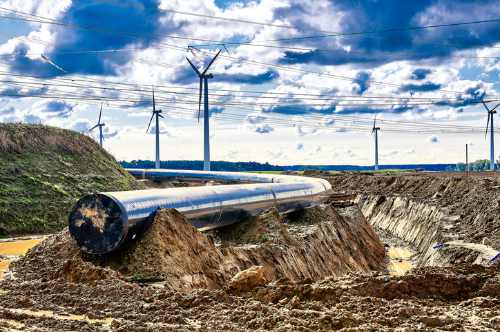Russia has a planned regular 11-day maintenance period of Nord Stream I beginning July 11. But the president of Germany’s Federal Network Agency, Klaus Müller, warned on Saturday that the pipeline maintenance could go on longer. It would be for political reasons. German industries would face possible collapse as a result.
His fear was echoed by Economy and Climate Minister Robert Habeck. He warned on Thursday that a “complete blockade” of Russian gas was possible.
Russia’s state-owned gas company Gazprom announced in June that there would be a 60% reduction in gas flows to Germany through the Nord Stream 1 pipeline which runs under the Baltic Sea from Russia to Germany.
At the time Kremlin spokesperson Dmitry Peskov said reductions in supply were not premeditated but instead related to maintenance issues.
Gas deliveries from Moscow have already been falling for weeks, raising fears that Germany could plunge into a recession later this year, Politico EU reports.
Müller told Germans to prepare by inspecting gas boilers and heaters and reducing consumption by up to 15%.
Germany has been heavily dependent on Russia for its energy imports, with 55% of its gas, 50% of its coal, and 30% of its oil coming from the country, Sky News reports.
Donald Trump pleaded with Angela Merkel to not go with Russian gas but she did it anyway. Now they face total collapse of top industries.

FACING THE WORST
Germany’s Economy Ministry is in charge of the security of energy supply. The Ministry said the new measures would include increased reliance on coal-fired power plants. They will also rely on an auction system starting to incentivize industry to consume less.
They are offering credit lines to Germany’s gas market operator to fill storage facilities faster. Other measures include passing high gas prices to customers to help lower demand. They already face high prices.
“We mustn’t delude ourselves: cutting gas supplies is an economic attack on us by [Russian President Vladimir] Putin,” Habeck said in a statement, according to a translation.
“We defend ourselves against this. But it will be a rocky road that we as a country now have to walk. Even if you don’t really feel it yet: we are in a gas crisis,” he added.
Habeck said gas had now become a scarce commodity and warned an extraordinary price rally could persist. “This will affect industrial production and become a major burden for many consumers. It’s an external shock,” Habeck said.
TOP INDUSTRIES FACE COLLAPSE
Top German industries could face collapse because of cuts in the supplies of Russian natural gas, the country’s top union official warned.
“Because of the gas bottlenecks, entire industries are in danger of permanently collapsing: aluminum, glass, the chemical industry,” said Yasmin Fahimi, the head of the German Federation of Trade Unions (DGB), in an interview with the newspaper Bild am Sonntag. “Such a collapse would have massive consequences for the entire economy and jobs in Germany.”
The energy crisis is already driving inflation to record highs, she said. Fahimi is calling for a price cap on energy for households. The rising costs for Co2 emissions mean further burdens for households and companies, Fahimi added.
The crisis could lead to social and labor unrest, she said, according to Fortune Magazine.
Subscribe to the Daily Newsletter